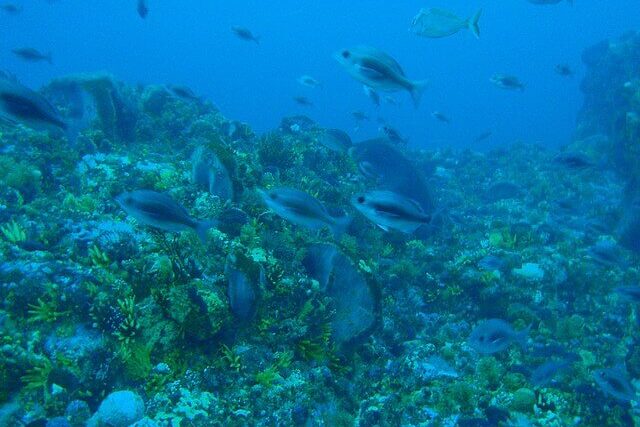
A recent study reveals that over 500 common species of fish, seaweed, coral, and invertebrates that inhabit Australian reefs have experienced a decline in the past decade. The report suggests that global heating is the primary cause of the declines, with marine heatwaves and rising ocean temperatures negatively impacting species living on rocky and coral reefs.
The study, published in the journal Nature, surveyed 1,057 species and found that 57% of them had experienced declines. Nearly 300 species were declining at a rate that could classify them as threatened. Of the species analysed, about 28% had suffered drops of 30% or more in just ten years, with those living in cooler waters being particularly affected.
According to Prof Graham Edgar, a marine ecologist at the University of Tasmania and the study’s lead author, the declines were most pronounced in the cooler southern waters of Australia’s Great Southern Reef, where kelp-dominated rocky reefs are being negatively affected.
“These declines are happening out of sight and with very little public attention,” he said.
Edgar said there were many more species in the waters that were not being monitored and were also very likely to be declining.
“We’re really only looking at the tip of the iceberg here. Species could be going extinct now,” he said.
“This is very concerning to me. I’ve been swimming up and down counting fish and seaweed for more than 30 years and I’ve seen first-hand the effect of warming on the system.
“With the direction this is going, it’s a huge worry.”
The study found that larger fish were declining at a faster rate than smaller ones, with pressure from fishing exacerbating the impact of rising temperatures. The authors warn that increasing ocean temperatures are presenting an existential threat to many reef species, with knock-on effects for ecosystems and commercial fisheries.
The authors note that marine wildlife in other rapidly warming cool temperate waters is also likely experiencing declines. Species living in waters near big urban centres, such as Melbourne, Adelaide, and Sydney, are particularly affected by pollution, coastal development, fishing, aquaculture, and land run-off.
The study focused on species living on reefs, but the authors suggest that marine wildlife in other rapidly warming cool temperate waters is also likely experiencing declines. The authors urge urgent action to address the negative impact of rising temperatures on marine ecosystems.
——————————————————————————
At Natural World Fund, we are passionate about stopping the decline in our wildlife.
The declines in our wildlife is shocking and frightening. Without much more support, many of the animals we know and love will continue in their declines towards extinction.
When you help to restore a patch of degraded land through rewilding to forests, meadows, or wetlands, you have a massive impact on the biodiversity at a local level. You give animals a home and food that they otherwise would not have had, and it has a positive snowball effect for the food chain.
We are convinced that this is much better for the UK than growing lots of fast-growing coniferous trees, solely to remove carbon, that don’t actually help our animals to thrive.
This is why we stand for restoring nature in the UK through responsible rewilding. For us, it is the right thing to do. Let’s do what’s right for nature!
Support our work today at https://naturalworldfund.com/ and join in the solution!

